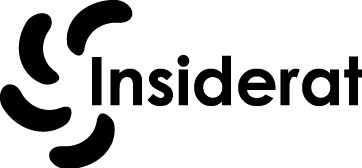Relevant experience refers to the skills, knowledge, and professional experience directly applicable to the job or role you are applying for. It shows that you have performed similar tasks or worked in a similar environment, which makes you more likely to succeed in the new role. The term is commonly used in job applications, resumes, and interviews.
Here’s a detailed table explaining relevant experience and how to present it effectively:
How to Identify and Present Relevant Experience (Step-by-Step)
| Step | Description | Execution |
|---|---|---|
| 1 | Review the Job Description | Carefully read the job description to identify the key skills, qualifications, and responsibilities required for the role. |
| 2 | Identify Matching Skills and Experience | Match the requirements with your past job roles, internships, volunteer work, or academic projects that align with the job description. |
| 3 | Focus on Related Tasks and Responsibilities | Focus on the tasks and responsibilities from your previous jobs that are similar to the ones mentioned in the job posting. |
| 4 | Highlight Specific Achievements | Use concrete examples to showcase your successes in areas relevant to the job, such as completed projects, leadership roles, or measurable improvements. |
| 5 | Tailor Your Resume/CV | Customize your resume to include only the most relevant jobs and accomplishments, ensuring each role highlights skills applicable to the new position. |
| 6 | Prepare for Behavioral Interview Questions | Prepare for interview questions that ask about your relevant experience, using the STAR method (Situation, Task, Action, Result) to structure your answers. |
| 7 | Emphasize Transferable Skills | If you lack direct experience in a particular field, focus on transferable skills like leadership, communication, problem-solving, or project management. |
| 8 | Include Internships, Volunteer Work, and Freelancing | Don’t limit relevant experience to full-time jobs; include internships, freelance work, volunteer work, or side projects if they relate to the position. |
| 9 | Quantify Results When Possible | Whenever possible, quantify your accomplishments (e.g., “Increased sales by 20%” or “Managed a team of 10”). This makes your experience more compelling. |
| 10 | Be Ready to Explain Gaps in Experience | If you lack specific experience in some areas, be prepared to explain how other aspects of your background compensate for it, or how quickly you can adapt. |
Key Aspects of Relevant Experience
| Aspect | Description | Examples |
|---|---|---|
| Direct Experience | Tasks or roles you’ve performed that are identical or very similar to those required for the new role. | If applying for a sales job, direct experience would include previous roles as a sales representative or account manager. |
| Transferable Skills | Skills that are not specific to one industry but can be useful in different fields. | Leadership, communication, problem-solving, time management, and project management are key transferable skills. |
| Industry Experience | Experience within the same industry, even if the role itself was different. | Working in retail as a customer service representative, and applying for a retail management position—both in the same industry. |
| Technical Skills | Specific technical knowledge or tools you’ve used that are needed for the role. | Experience with software like Excel, programming languages, or industry-specific tools like AutoCAD for engineering roles. |
| Leadership Experience | Experience managing teams, leading projects, or taking responsibility for significant outcomes. | Managing a team, leading a project, or being in charge of decision-making. |
| Educational Experience | Academic projects, courses, or degrees related to the field or job you’re applying for. | If applying for a software development role, relevant education might include a degree in Computer Science or coursework in programming. |
| Volunteer/Non-Profit | Volunteer or non-profit work that involves similar skills or roles to the job you’re applying for. | Volunteer project management, event coordination, or leadership roles at a non-profit organization that mirror the job requirements. |
| Internships | Internships that provided hands-on experience in areas relevant to the job you are applying for. | If you interned in a marketing department and are applying for a marketing coordinator role, your internship is relevant experience. |
Example of How to Present Relevant Experience on a Resume:
| Position | Company | Dates | Key Responsibilities and Achievements |
|---|---|---|---|
| Marketing Manager | ABC Corp | 2019 – Present | – Managed a team of 5 in the development of marketing campaigns, increasing overall engagement by 35%. – Spearheaded the launch of a new product, achieving a 20% sales increase. |
| Sales Associate | XYZ Retail | 2017 – 2019 | – Provided excellent customer service and exceeded sales targets by 15%. – Assisted in merchandising and inventory control, improving stock accuracy by 10%. |
Notes:
- Tailored Resumes: Your resume should always be tailored to the job description. Highlight experience that mirrors the key responsibilities of the job.
- Transferable Skills: Even if you don’t have direct experience, showing how your skills from another job can transfer is crucial.
- Quantify Achievements: Use numbers to back up your experience and show your impact on past roles.
Would you like to work on how to phrase your relevant experience for a particular job? Or perhaps review a resume?

